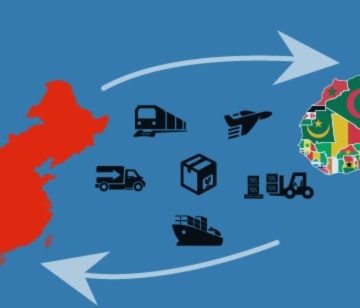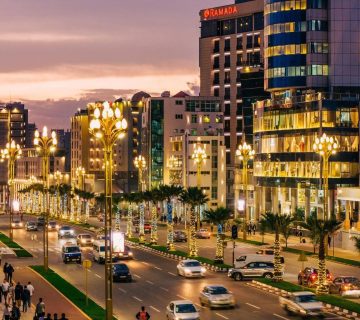Ethiopia’s Prime Minister, Abiy Ahmed, announced the completion of the three-week Ethiopia National Defense Forces (ENDF) operation in Tigray on November 29, 2020 with the fall of Mekelle, the northern region’s capital, to federal forces. However, the reality is a little far from the government’s position. The Tigray People’s Liberation Front (TPLF) forces in Tigray remain heavily armed, the armed faction has not yet surrendered to federal authorities, and no ceasefire has been reached to stop fighting on all fronts. The TPLF and Tigrayan leader, Debretsion Gebremichael, announced after the siege of Mekelle that fighting was still on across all fronts and that his forces were fighting near Mekelle. While ENDF and allied forces (Amhara Special Forces and Eritrean Armed Forces) have gained significant control of territory and the capital of Tigray, the TPLF side has vowed to mount guerilla warfare to recapture lost ground. This hints at a protracted armed conflict in northern Ethiopia, which is likely to worsen the humanitarian situation, escalate ethnically charged confrontation along Tigray and Amhara borderlines, intensify instability in Ethiopia, and deepen regional volatility.
War Crimes, Humanitarian Strife, and Internationalized Conflict
Northern Ethiopia is currently engulfed in humanitarian strife as a result of the conflict compounding pre-war poverty and food insecurity in Tigray. The conflict in the north has disrupted trading routes and supply lines for food and essential supplies as the Sudanese trade routes remain closed, while Eritrea and Djibouti are supporting the operation militarily and morally respectively. Gebremeskel Kassa, the Head of the Interim Tigray administration puts the number of internally displaced people in Tigray at 2.2 million and added that 4.5 million people are in need of emergency aid as a result of the conflict in Tigray. The United Nations High Commission for Refugees, has stated that over 50,000 Ethiopians have fled to neighboring Sudan, with the United Nations preparing to handle over 200,000 Ethiopian refugees in the coming days. Social services including medical services remain severely hampered and disrupted.
On the other hand, the conflict has registered alleged war crimes on both sides of the conflict, with scores of civilians being targeted and killed in several Tigrayan towns such as Humera and Maikadra. The involvement of ethnic Amhara forces in the conflict on the side of ENDF has driven an ethnic wedge in the conflict as seen in the places such as Maikadra where Amhara civilians were reportedly massacred. A protracted confrontation is likely to aggravate genocidal clashes and ethnic cleansing in the north, as reprisal attacks remain imminent.
Furthermore, the conflict has been internationalized, involving the direct and active participation of Eritrean armed forces against TPLF. Djibouti and Somalia have expressed moral support for ENDF’s military operation, while Sudan reportedly deployed its military on its border with Tigray, to “suffocate” TPLF by cutting off its military supply lines and disrupting its logistical gray zones. The other looming risk is the likely entry of the Gulf and MENA powers into the conflict. On November 18, 2020, the Eritrean Foreign Minister visited Cairo in what appeared to be efforts to dissuade Egypt from getting involved, while Turkey has constantly kept abreast of the goings-on in Ethiopia and has pledged to cater for Ethiopian refugees in Sudan. A prominent gulf country is also reported to have leased its drones to ENDF for precision strikes against TPLF.
Failed Diplomatic Campaign
Diplomatic efforts and pressure to secure a complete end to the confrontation and resumption of dialogue are slipping through Addis Ababa’s indifference and impenetrable attitude. Regional countries such as Kenya, Uganda, Rwanda, Sudan, and South Sudan as well as the African Union, regional body IGAD, and the good offices of (President Cyril Ramaphosa of South Africa) the Chair of African U Assembly of Heads of State and Government have failed to earn leverage on Ethiopia’s leaders. The European Union, the United States of America, and the United Nations, seem remotely influential, with Ethiopia’s PM rebuffing their diplomatic pressure as interference with Ethiopia’s sovereignty. Continued lack of diplomatic leverage on Ethiopia’s decision-makers from regional and international community risks the conflict spiraling into worse war crimes as mass displacements, cases of ethnic profiling and targeted ethnic massacres, escalate patterns towards ethnic cleansing, or genocide as United Nation’s Human Rights Chief, Michelle Bachelet has warned. The humanitarian situation is likely to worsen as the conflict takes its own course, with conflict actors continuing to resist international accountability.
Change of Tact and Way Forward
To overcome the diplomatic deadlock in a de-escalation of the conflict as shown in Addis Ababa’s push-back against foreign intervention, the international community should employ coercive diplomacy. Proper conflict analysis and mapping of actors will help in this phase. Diplomatic intervention should shift from focusing on actors in Ethiopia to involving Eritrea and Sudan. Coercive diplomatic instruments such as aid cuts, trade and arms embargoes, and targeted sanctions on conflict actors in Ethiopia, Eritrea, and Sudan will change the dynamics of the conflict further and yield a window for ceasefire and dialogue. Secondly, the international community should elect a technical group in Ethiopia to initiate structured talks and an end to the conflict that could destabilize the Horn of Africa and grossly undermine human rights. A ceasefire should be secured on all fronts to allow far-reaching humanitarian support, investigations into alleged war crimes, human rights violations, and dialogue.
For confidence building, military positions should fall back to pre-November lines to secure the ceasefire, eliminate chances of guerrilla resistance in Tigray, and allow for a balanced conflict resolution process short of military imposed equations. Thirdly, the dialogue process should be inclusive of all consequential political and armed groups, regional administrations, and political parties with regard to Ethiopia’s ethno-federalism, the constitution, elections, and Ethiopia – Tigray conflict. However, dialogue should also involve Eritrea, discuss the Algiers Agreement of 2000, the 2002 decision on Eritrea- Ethiopia Boundary Commission, and the implementation of the 2018 Ethiopia – Eritrea Peace Agreement. Further, Amhara-Tigray territorial questions, Tigray’s political administration, and war crimes should be addressed for long-term stability and peace. Resolving Amhara-Tigray territorial questions and ethnic violence experienced in this conflict will further help to prevent future conflict between the two groups.
Edmond J. Pamba is a researcher at the HORN Institute
Photo: Ethiopian federal forces in Humera, near Tigray’s border with Sudan (Photo Credit: Eduardo Soteras/AFP/Getty)



